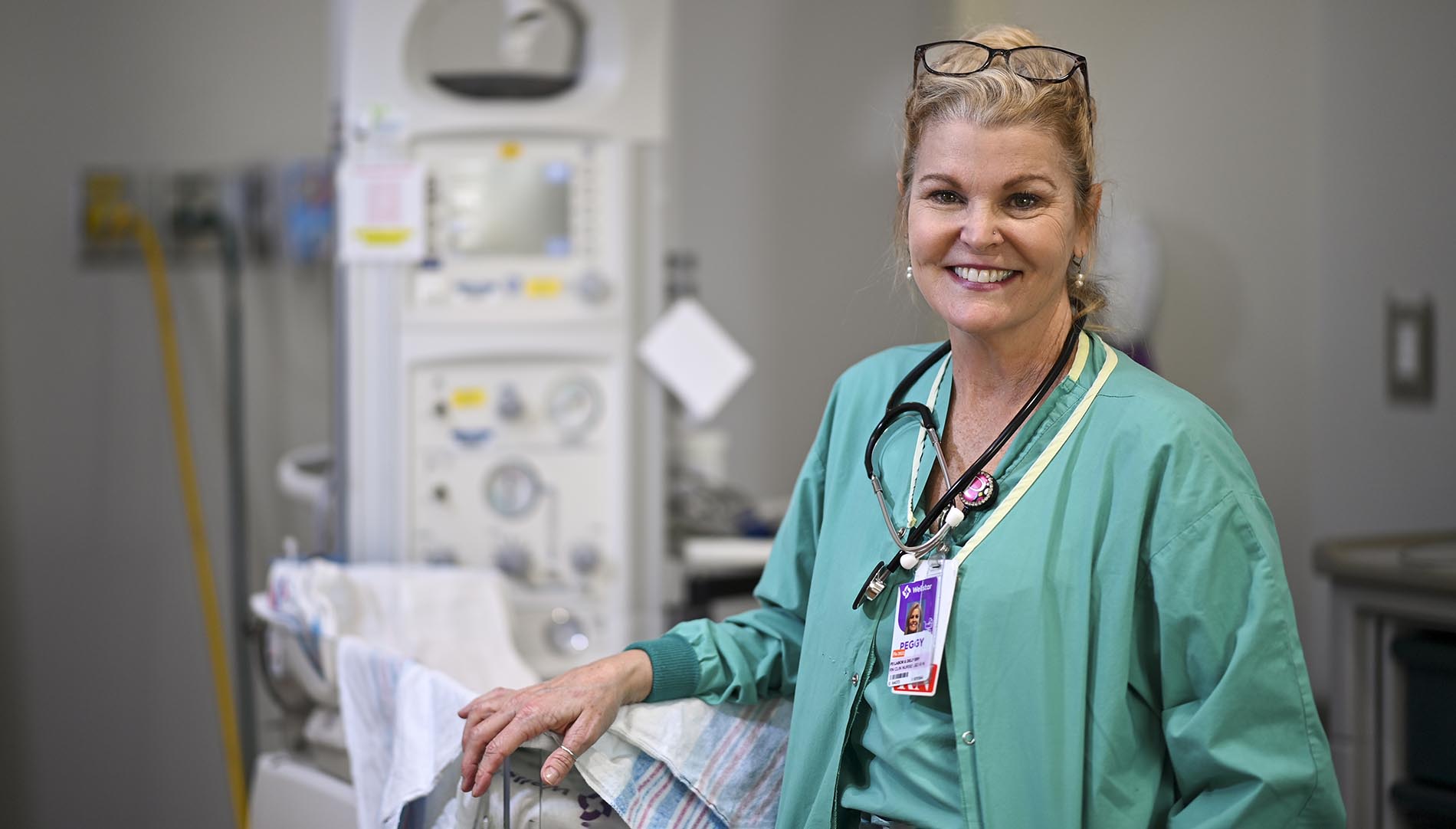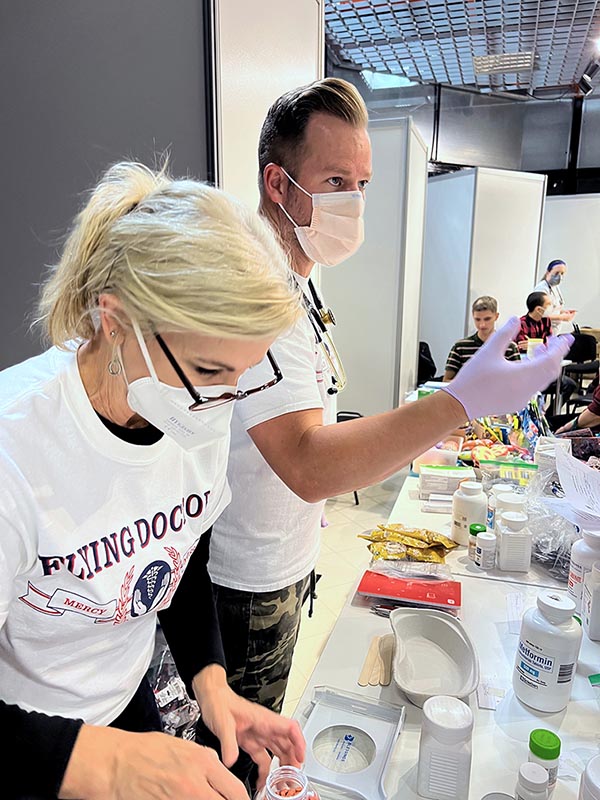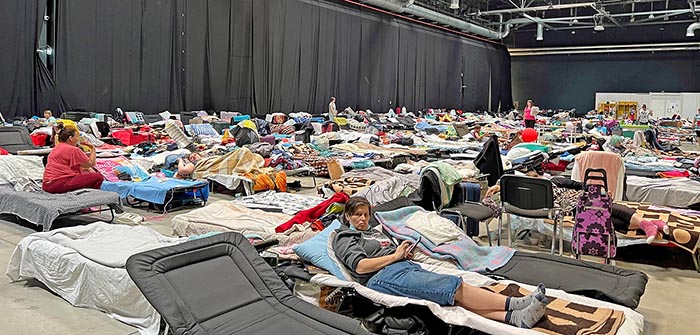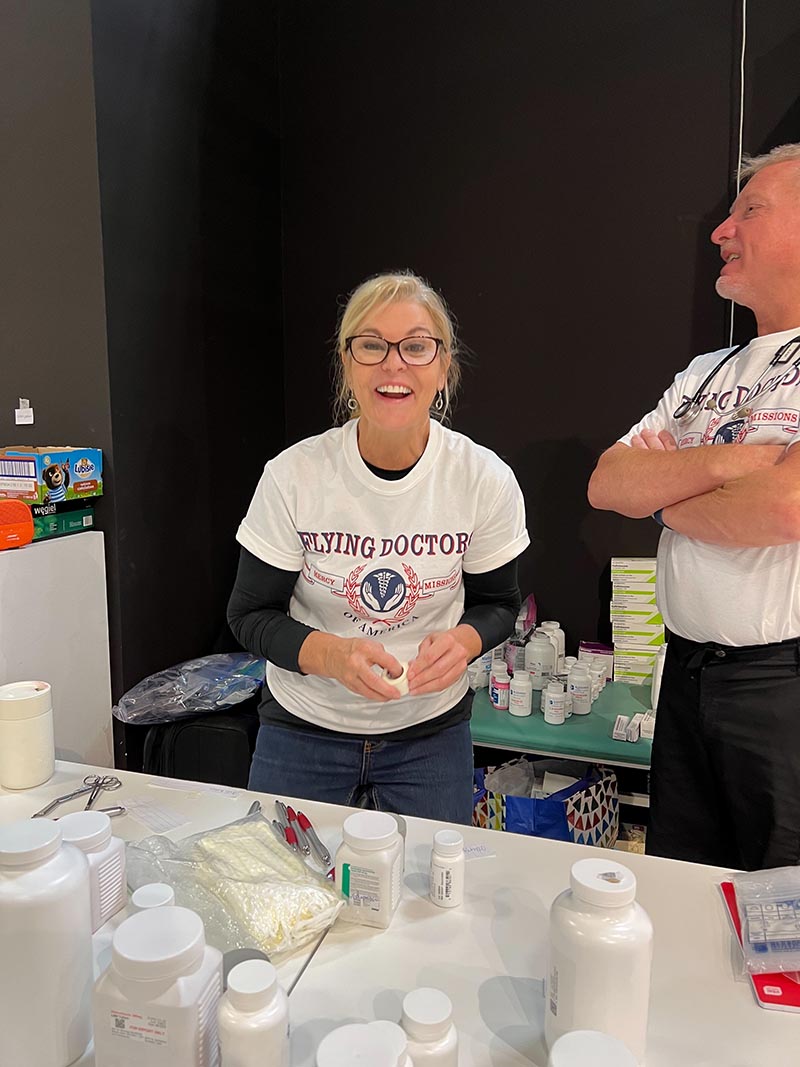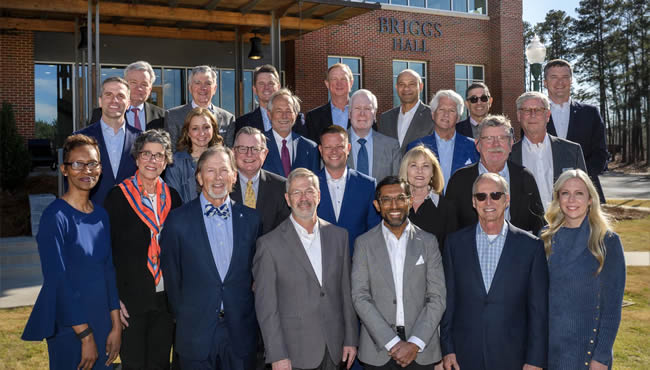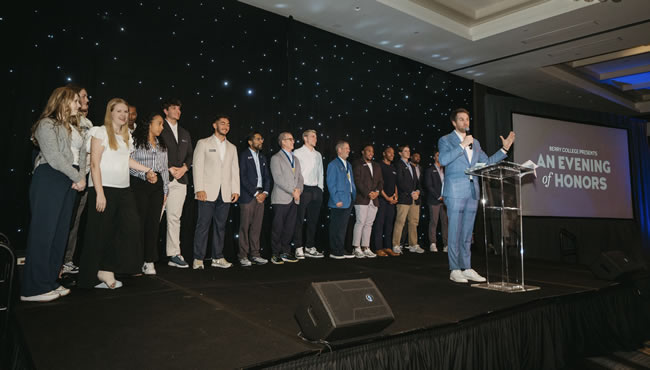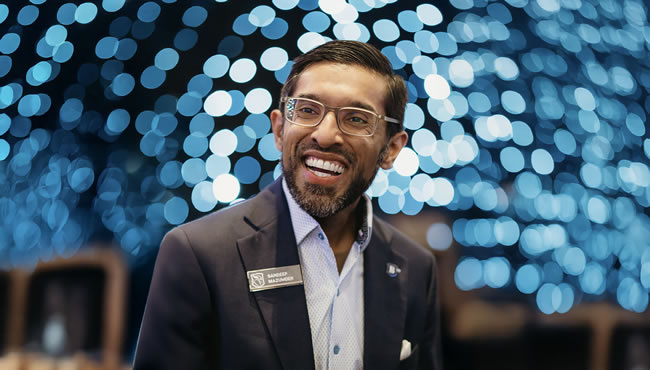Story by Karilon L. Rogers
Portraits by Brant Sanderlin; shelter photography by Michael Altman, Flying Doctors of America
If you don’t think a new college program can make a difference in an expanding network of lives, you don’t know Peggy Earley, RN (15C). Becoming a charter graduate of Berry’s Bachelor of Science in Nursing program not only empowered her to live the life of service she so deeply desired, but it also allowed her to follow a heavenly whisper to Poland and 1,500 Ukrainian refugees.
Earley (Stein while at Berry) flew out of Hartsfield-Jackson International Airport on Sept. 2, 2022. Her destination: Warsaw, Poland. Her plan: To join a small group of health care professionals serving a weeklong Flying Doctors of America medical mission at a Ukrainian refugee shelter 25 miles outside that ancient city.
At the shelter, Earley and the team found more than 1,500 human beings – old, young, singles, couples – who had fled the Russian onslaught on their nation with only the possessions they could drag, carry or wear on their backs. Many had spouses, fathers, sons or daughters in significant danger back home. None likely anticipated living in the clean but stark warehouse structure, sleeping on a cot, and using community showers and toilets for such an extended period. Many were in desperate need of the most rudimentary medical care.“The shelter was well run,” Earley emphasized, “but it also was an empty shell of a place with absolutely no privacy.”
The team jumped right in, setting up stations of plastic chairs and tables where they could provide basic care. It didn’t take long for these strangers to win the confidence of the refugees.
“We served maybe 60 patients the first day,” Earley stated, “but that quickly grew to up to 300 a day.
“We had doctors, dentists, nurses, a PA and a paramedic,” she described, “and saw such things as untreated high blood pressure, infected dog bites (people brought their family pets to the shelter), emphysema (everyone smokes!) and so many other conditions. We even had an infant who hadn’t eaten in weeks. We were able to get him eating again!”
The team also provided a great deal of dental care – pulling teeth and the like. Patients sat in straight-back plastic chairs with heads flung back while infected teeth were pulled. No comfy, reclining dental chairs were available for the distinctly uncomfortable procedure, but they did have dental anesthesia, thank goodness.
Despite such conditions, the Flying Doctors team had many repeat customers.
“They were so grateful and thankful for us,” Earley recounted. “The tears of gratitude were heartwarming. They just wanted someone to care. I found that treating someone with severe loneliness was just as important as treating someone with emphysema.”
Earley’s assignment was dispensing medicines provided by the Flying Doctors, medicines to which the refugees had no other access. She busily took the prescriptions written by the physicians, matched them to the medications on hand and then worked with Polish and Ukrainian interpreters to deliver instructions the patients could understand. The role kept her hopping.
The donation for each volunteer to go on a medical mission trip abroad runs in the several thousands, more than Earley could afford. Then something amazing happened.
She also was busy with the far end of her “dispensing area,” a section dedicated to the many small toys the volunteers had brought halfway around the globe to distribute daily to the children.
When her mission trip ended, Earley realized how much she had learned about the reasons behind the Ukrainians’ will to fight, why Poland provided so much support, and how her own daily trials and tribulations stacked up to those of her Ukrainian patients.
“I realize now that while I might have worried about paying my electric bill, the refugees worry if they will ever find their house again! Or if they will ever see ‘Tom’ who lived on the corner again. It really gives you a different perspective to step out of your own environment,” Earley said.
She heard the whisper
Per the organization’s mission statement, Flying Doctors of America was founded in 1990 to bring together teams of health care professionals to care for people who otherwise would not receive medical care. They operate under the “Mother Teresa Principle” of focusing on the “poorest of the poor, living in conditions that are difficult for most Americans to imagine.”
“I had been on a trajectory for this for so long,” Earley declared. “I had wanted to be of service in something like the Peace Corps, but what could I do before I got my nursing degree? Once I had it, I got emails from the Flying Doctors, but the money wasn’t there to go.”
The donation for each volunteer to go on a medical mission trip abroad runs in the several thousands, more than Earley could afford. Then something amazing happened.
“I served as a nurse for my kids’ camp in the summers,” she explained. “The internet at the camp was VERY spotty. Usually, I had to walk up to the road to get my missed calls and emails for the day. But one night last summer, as I prayed my usual prayer to God to walk beside me and whisper in my ear what He wants me to do, I immediately heard a ‘ping’ from my phone. It was an email from the Flying Doctors about the trip to Poland for the refugees. For some reason it had gotten through! I immediately told God, ‘I hear You. I will go.’”
But there still was the money issue; the donation for the trip was $5,000. Earley was able to come up with half herself. She put out a request to her Facebook friends for the rest, and “they came through for me!”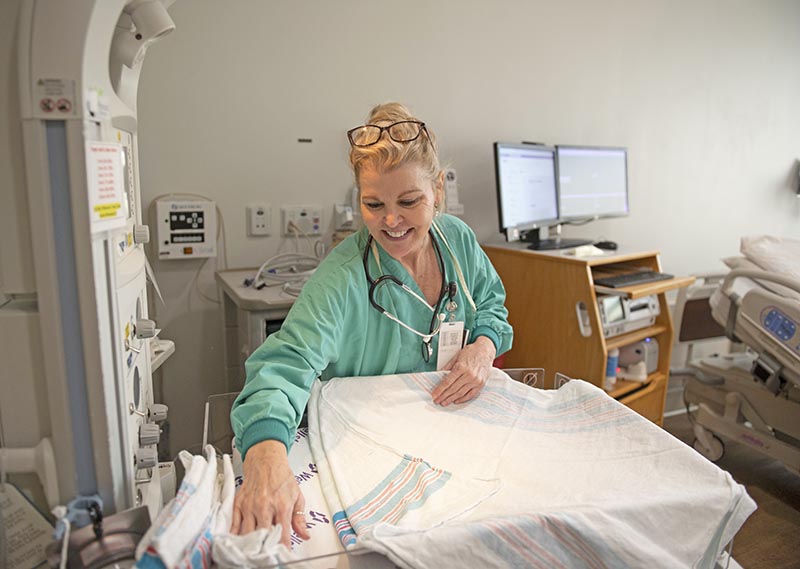
Long time coming
The youngest of 10, Earley started life in Maryland but grew up in Allentown, Pennsylvania. She was able to attend college thanks to academic scholarships, first at the University of Texas at Arlington and later Norfolk State University, where she studied journalism.
While growing her family, she worked a variety of jobs in a variety of locations, including service in the restaurant and catering industries and later as a hospital labor and delivery unit secretary and then as a physician practice manager. But her mother always said she should be a nurse, and her mother was right.
“I always wanted to serve,” Earley said simply. “When I turned 40, I decided I didn’t want to have any regrets; I wanted to go to nursing school. But then I had an unplanned pregnancy for my youngest child, and that delayed me. So, I was 42 when I went to Kennesaw State and started taking my science classes.”
When it was time for her to start a nursing program, it was a no-go at KSU. No spots were open to her with hundreds of applicants vying for relatively few spots.
“But someone there did tell me about Vanice Roberts setting up a new program at Berry College and suggested I call her,” Earley said. “I did, and she encouraged me to come up for an interview.
“I became one of the first 15 graduates of Berry’s BSN program. All were younger than me. Only one, Connie Burchfield (15C), was a mother too, and as she also lived in the Atlanta area, we carpooled, taking turns with one driving and the other reviewing notes and quizzing the other.”
The duo remains close today.
“Connie was my cheerleader,” Earley emphasized. “Everyone was working hard to get through the program. But I also was trying to keep my family together – making sure each of my six kids had birthday parties, etc.”
Dr. Vanice W. Roberts, RN, now retired, knows she made an excellent decision accepting Earley into the program, even if Earley was older than her traditional-age classmates.
“That first class was hard,” Roberts stated. “We went full steam for 15 months. Peggy accepted all the challenges; her empathy, patience and ability to connect with people, with patients, were truly exceptional. She also was the favorite of her classmates. She treated everyone special, and everyone loved her. She won’t like me saying this, but she was ‘Class Momma.’”
Expanding network of caring
Today, Earley works as a labor and delivery nurse at Wellstar Kennestone Hospital in Marietta, Georgia, and with Advanced Care Partners providing in-home care for children with severe medical needs, such as those with feeding tubes or breathing machines. She also recently became qualified to work as a Sexual Assault Nurse Examiner with Live Safe House, where victims are brought for rape kit examinations following attacks.
In addition, Earley volunteers with Journey Through Bereavement, a program of Wellstar Health System that enables her to walk alongside maternity patients – during pregnancy and after – who choose to continue their pregnancies even though their babies are not expected to live very long after birth.
New really can matter
If Berry College’s new baccalaureate program in nursing hadn’t welcomed its first students in the 2014 spring semester, would Peggy Earley have had the chance at the age of 49 to start nursing school with students less than half her age? Would she be helping to deliver babies, assisting sick children in their homes, caring for sexual assault victims and walking alongside women at one of the worst times of their lives? Without that program, would she have been able to care for hundreds of Ukrainian refugees forced to flee their homes when their country was mercilessly attacked? Would she be continuing to make a difference in an ever-expanding network of lives?
While the expanse of human care the program has engendered over the last 9½ years is beyond measure, its effect on one charter member is well-defined.
“Vanice Roberts changed my life by giving me the opportunity to be in Berry’s nursing program,” Earley stated emphatically, continuing with a breaking voice: “The program allowed me to become the person I was always supposed to be. A person who serves.”
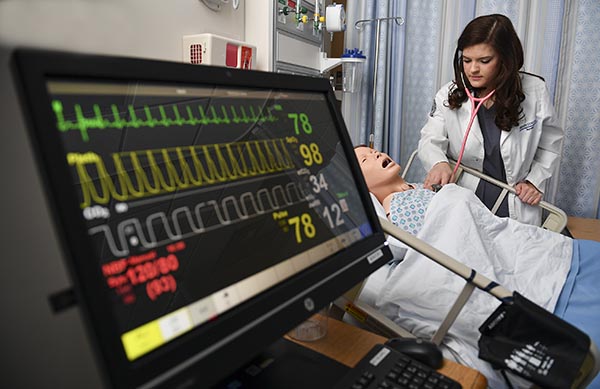 Bachelor of Science in Nursing program highlights
Bachelor of Science in Nursing program highlights
Nursing Program Goal:
To grow the number of BSN students graduating annually to 80 in five years
• Nursing program on-time graduation rate: 91%
• Nursing students with job offers before graduation: 100%
• Nurses graduated since program inception: 259
• In the last three years:
- Registered nurse licensure exam first-time pass rate: 86% (national average 80%)
- Pass rate within 3 attempts (known): 96%
• Survey of employers who believe Berry nurses are well prepared for their entry-level roles: 100%
• Three-year-out nursing alumni involved in community service: 100%
